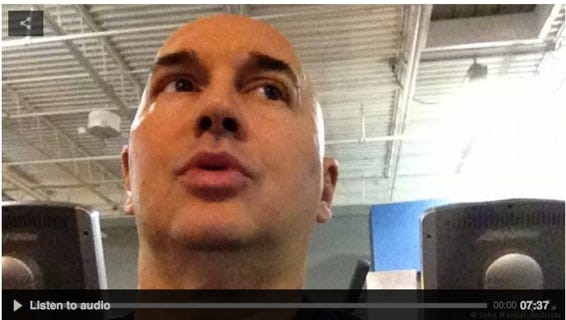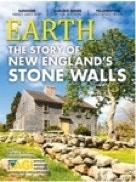ABOUT

"John-Manuel Andriote: A Life Marked by HIV-AIDS." Profile-interview for Deutsche Welle (German Worldwide) Radio, by BBC producer Ashley Byrne.
Photo by John Shishmanian for The Norwich Bulletin
MEET JOHN-MANUEL ANDRIOTE
I was clear from the time I went public about my diagnosis in a first-person "HIV coming-out" story for The Washington Post and NPR interview: HIV is something I have; it is not who I am.
My diagnosis set me on a journey of self-exploration. I looked deep within and searched my decades of journals to understand the forces in my life that had driven me to behave in ways that led to that awful moment.
I found a lot of trauma in my personal history. I also found plenty of evidence of my own resilience. Where did it come from? How had I become resilient?
The result of exploring my own, and other gay men's, resilience is my latest book Stonewall Strong. I call it the bookend for my earlier book Victory Deferred: How AIDS Changed Gay Life in America. Where Victory Deferred chronicled the gay community's mobilization and suffering in the HIV-AIDS epidemic, Stonewall Strong celebrates the heroism and resilience that AIDS and our other traumas have forged in us.
Living with HIV has made me aware of my power to choose how I tell my story. That's why I tell it in a way that makes me the hero, not the victim. It's why I choose to tell my story, my way . . . and why you can, too.
For me, the stonewall (stone wall, if you prefer) in "Stonewall Strong" is a double entendre. It references the 1969 Stonewall uprising that launched the modern LGBTQ equality movement. That is where people who value honesty and authenticity pushed back against their oppressors. But for me as a New Englander, the countless stonewalls around us in this beautiful old region represent what we call Yankee grit because of the hard work and perseverance over decades it took to build them. I wrote about New England's iconic stone walls in a cover story for Earth magazine. Check it out here.



